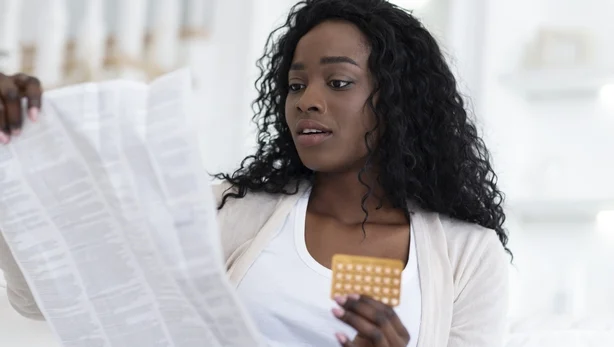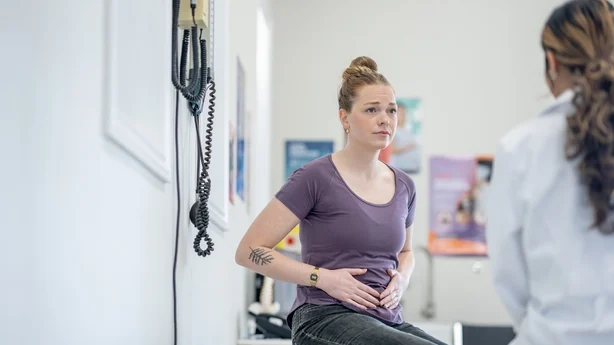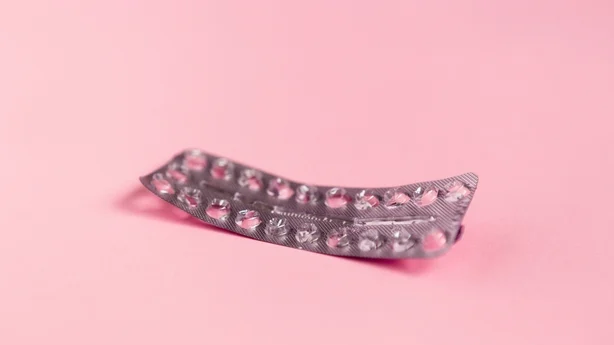Ireland has one of the highest rates of contraceptive use in the world. That's according to The State of the World Population Report, released in April, which states that the contraceptive prevalence rate among women aged 18-45 years in Ireland is 65%, rising to 70% among women who are in a "union".
By far, the most popular choice for those women is the contraceptive pill - 448,326 packs were distributed for free between January and September 2023 by the State as part of a new programme.
The pill, when used correctly, tends to work remarkably well; efficacy rates approach 100%.
And yet, its presence is repeatedly criticised by those committed to the "clean," food and beauty movement, one which shirks modern medicine to engage in "natural," practices free from chemicals. While most medics dismiss this practice––one which demonises chemicals, despite water, salt and milk falling under the "chemical" category––it does leave women in all age brackets subject to various reams of misinformation.
As a result, hormonal birth control has a bad reputation, with some women choosing not to take it over a fear of side-effects. But should we be scared, or is this simply another case of not being adequately informed?

First thing’s first, anecdotally it seems that there’s a cultural belief out there that the pill is bad.
"I think a lot of people think that it's unnatural, and therefore it's bad," so says Dr Geraldine Connolly, a consultant gynaecologist with 25 years of experience in the field.
"The whole thing about the pill is that we're using it in situations that are not life threatening, instead we use it to potentially improve someone’s quality of life. When we do something like this, you have to think about the risk and the benefit, And it really, really depends on where you are in terms of your risks and where you are in terms of your benefits.
"For example, if you have a young woman experimenting with sex, you've got to weigh up the risks with for that individual being on the pill versus getting pregnant. The risks of getting pregnant are hugely greater than the risks of going on the pill at that stage.
"Whereas if you have a medical condition such as polycystic ovary syndrome (PCOS) or endometriosis, one of the options that we have to treat these conditions is going on a pill, which will help the quality of life of that individual. It’s very nuanced."

As a 31-year-old woman, the parameters of my adult life have been shaped by the pill. First prescribed it at 15 due to painful periods and hormonal acne, all of my life’s achievements have been bookended by taking one each morning.
It’s a regular story for the women in my demographic, yet as fertility becomes a painful, growing issue for so many, some may wonder if fertility issues could be linked with long-term hormonal contraception.
"You would never make a statement that the pill causes infertility, or that there’s a direct link," Amy O’Mara, women’s health practitioner insists. "There are 101 reasons why people may be suffering from infertility, and the pill might have nothing to do with them."
"The pill certainly has a purpose," Carla Buckley, nutritional therapist and pharmacist shares. "But from our point of view, we see women coming to us who have been on the pill for years, and they then have an underlying condition, like PCOS or endometriosis, which has just been masked by the pill for that time. So when they try to come off it, they think something is wrong––but it’s actually just the first time that communication has been open between the brain and reproductive system for a long time."

The pill is regularly prescribed in Ireland to teenagers who present any number of the following symptoms: acne, PCOS, painful periods, irregular bleeding, contraception, and other hormonal issues.
A form of hormonal contraception, it works by changing the menstrual cycle. I am incredibly glad I went on the pill, but some suggest that other options should be offered to young people instead, or at least more education.
"I find that as women, we don't have that power sometimes," Celine Nelli, Fertility Nutritionist & Women’s Health Practitioner shares via Zoom. "We’re just told to do this without fully understanding our body, and we don’t question it because doctors are these sort of higher powers. We’re not told what it does to us, like sometimes it can actually put a burden on the liver, and potentially cause endocrine conditions for others."
Our lack of knowledge of female hormones comes as a result of a lack of female-based clinical studies when it comes to medication and illness. Historically, most studies were conducted on men, resulting in male-only symptoms and implications of certain illnesses coming to the fore. As such, misinformation and fear persists. But, in terms of what the medical literature does say about the pill, much of it is indeed positive.
"All of the literature I looked up about going on the pill for the long-term said there was no harm attached," Dr Connolly smiles.
"Now I think that needs to be slightly tempered, because the longest length of time I could find in any study was seven years, not 10 or 15. And that study is a big meta analysis of lots and lots of different studies, and they have said that it doesn't delay the onset of fertility. What does happen instead that conditions like PCOS or endometriosis can rumble away in the background, ones that you know nothing about because you’ve been on the pill, and then when you try and get pregnant, it doesn't happen right away."

When it comes to cancer, something many fear when researching hormonal contraception, some research suggests that women who use hormonal birth control are at a slightly increased risk of breast and cervical cancer. However, that elevated risk seems to be temporary, and also seems to drop off after a woman stops using birth control.
On the other hand, different studies have suggested that hormonal contraception reduces the risk of developing other types of cancer, including colorectal, ovarian and endometrial. Conversely, those benefits seem to last for decades, even after someone has stopped using birth control.
The balance, according to this study by the American Journal of Obstetrics and Gynaecology, is "neutral": with the "increased risks counterbalanced by the endometrial, ovarian, and colorectal cancer benefits that persist at least 30 years."
The literature, overall, is positive, Dr Connolly insists. That said, one can’t help but wonder about the persistence of such beliefs around the pill. Is it misogyny and shame-based, do we think? "I reckon it is," Dr Connolly says. "We are a product of our society. That said, we are evolving. There's no doubt about it, actually. For me, it's wonderful to see that teenagers are much more likely to come forward and ask for good contraception or tests for sexually transmitted infections. I think that’s very reassuring.
"You know, misogyny is rampant in all parts of society. And there's no doubt that we have all sorts of biases, be it conscious or otherwise. We bring our cultural beliefs with us, and we can't just switch them off. That said, we are certainly shedding them, and starting afresh. And with the government support we now have, I find that very reassuring indeed. There’s lots to be thankful about."
For more information on the contraceptive pill, speak with your GP or visit www.sexualwellbeing.ie
Disclaimer: The copyright of this article belongs to the original author. Reposting this article is solely for the purpose of information dissemination and does not constitute any investment advice. If there is any infringement, please contact us immediately. We will make corrections or deletions as necessary. Thank you.






